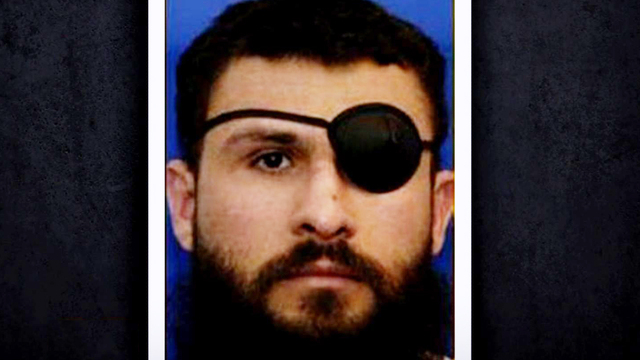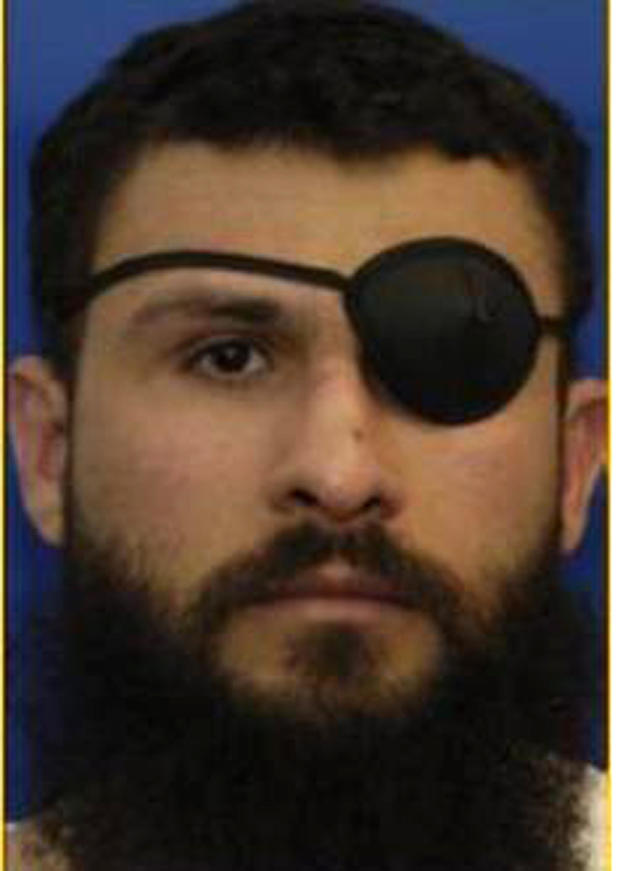Washington — The Supreme Court grappled Wednesday with whether the federal government should be allowed to shield information from a Guantanamo Bay prisoner, the first detainee in the CIA’s “enhanced interrogation” program, about his treatment, including where his interrogations took place.
But arguments in the case of the detainee, Abu Zubaydah, were capped by questions from the justices about whether he could testify himself about what he experienced in the early 2000s at a secret overseas CIA facility, known as a black site, widely reported to be in Poland.
Justice Stephen Breyer first raised the prospect of Zubaydah answering questions about his treatment following his capture in Pakistan. But as oral arguments came to a close, several other justices asked acting Solicitor General Brian Fletcher about whether the government would make him available to provide information. Zubaydah has been held at the detention facility in Guantanamo Bay, Cuba, since 2006.
“Why not make the witness available?” Justice Neil Gorsuch said. “What is the government’s objection to the witness testifying to his own treatment and not requiring any admission from the government of any kind?”
The case, Gorsuch continued, “has been litigated for years and all the way up to the United States Supreme Court and you haven’t considered whether that’s an off-ramp that the government could provide that would obviate the need for any of this?”
Breyer told Richardson he doesn’t understand why Zubaydah is still being held in Guantanamo Bay after 14 years.
“Just say, ‘Hey, you want to ask what happened, ask him what happened,'” he told the Justice Department lawyer.
“We want a clear answer, are you going to permit him to testify as to what happened to him those dates without invoking a state secret or other privilege? Yes or no. That’s all we’re looking for,” Justice Sonia Sotomayor said.
The Justice Department said Zubaydah is an associate and longtime ally of Osama bin Laden who was captured in Pakistan nearly two decades ago and held in CIA detention facilities abroad before he was transferred to Guantanamo Bay.
As part of criminal proceedings brought in Poland to hold officials there accountable for their involvement in his detention, Zubaydah and his lawyer Joseph Margulies want two former CIA contractors, James Mitchell and Bruce Jessen, to testify about whether the CIA operated a detention facility in Poland the early 2000s, as well as to the details of Zubaydah’s alleged treatment. Mitchell and Jessen designed the CIA’s enhanced interrogation program, now widely denounced as having led to the torture of terrorist suspects.
But after Zubaydah and Margulies sought to subpoena Mitchell and Jessen through federal district court proceedings, the U.S. asserted the state-secrets privilege to block testimony from the contractors. Then-CIA Director Mike Pompeo said in a declaration he did so in part to maintain trust from foreign partners, as they “must be able to trust our ability to honor our pledge to keep any clandestine cooperation with the CIA a secret,” according to Supreme Court filings.
While the U.S. has declassified a substantial amount of information regarding the CIA program, including regarding Zubaydah’s treatment while in CIA custody and the interrogation techniques used against him, the Justice Department said in a Supreme Court filing that the identifies of foreign intelligence partners and the location of former detention facilities in their countries could not be declassified, as it would harm national security.
But Zubaydah’s attorneys argue information about his torture and his detainment at various CIA black sites, including the facility in Poland from December 2002 to September 2003, is well known, as the former president of Poland — in office during Zubaydah’s detainment — confirmed the CIA operated a black site in the country.
The 2014 public report from the Senate Intelligence Committee on the CIA’s torture program also detailed Zubaydah’s detention, identifying him as the first detainee to be subject to the CIA’s interrogation program. After he was captured in Pakistan in March 2002, he was waterboarded at least 83 times, spent more than 11 days in a “coffin-size confinement box” and 29 hours in an “extremely small enclosure,” according to court filings.
While a federal district court sided with the government in blocking Mitchell and Jessen from turning over information, a divided 9th U.S. Circuit Court of Appeals panel rejected the assertion of the state-secrets privilege, finding the information sought was not a state secret. The information, the 9th Circuit said, has “been in the public eye for some years now,” as the CIA maintaining a detention site in Poland was well-reported by journalists and other organizations.
The Justice Department then brought its bid to protect the information to the Supreme Court.
David Klein, who argued on behalf of Zubaydah, told the court that the government is trying to keep the information shielded because it does not want to help with the ongoing investigation in Poland into officials who were complicit in his detention and treatment.
“We’re not talking about a secret anymore,” he said. “We’re talking about a governmental wish not to assist this Polish investigation. That’s a policy.”
Justices Clarence Thomas and Amy Coney Barrett questioned why testimony from the CIA contractors was needed when Zubaydah’s attorney had conceded much information about his detention has already been disclosed.
“If don’t need them to establish the existence of the site in Poland and you don’t need them to establish what happened to him, the torture that he underwent, what do you need them for?” Barrett said of the contractors’ testimony.
A decision from the Supreme Court is expected by summer 2022.



































